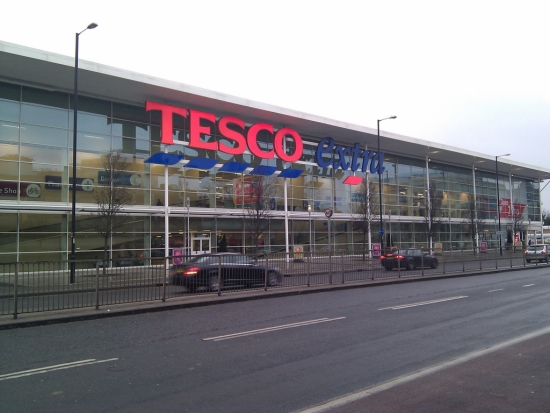Some of Britain’s largest supermarket chains certainly began 2013 with a bang, with the nation rocked over allegations that horse meat had been found in Tesco and Lidl budget burgers. When these rumours were confirmed, all chains connected to the scandal went into urgent damage repair mode and emptied their shelves of all contaminated produce.

Unfortunately, it appears that not enough was done to reassure the public that they could trust their local supermarket as Tesco was forced to post a fall in quarterly sales in the 13 weeks to May 25th May. Excluding the effects of petrol and value added tax, like for like sales dropped by 1 per cent during the period – a seemingly small amount, yet worrying when the fact that Sainsbury’s has consistently posted profits large enough to be snapping at the heels of the UK’s number one chain is taken into account.
However, Tesco is attempting to downplay the effects of the horsemeat scandal, claiming that it had a “small but discernible impact” on sales of frozen and chilled convenience meals. The retailer also points out that sales in these categories have increased significantly in recent weeks, indicating almost full recovery from the incident.
Instead, Tesco believes that the decline in non-food sales is responsible for the quarterly drop in sales. Consumer electronics failed to sell particularly well during the three month period, and as a result Tesco has decided to scale back operations in this particular area.
Chief executive Philip Clarke claims that some of the changes currently being made in Tesco stores have had an impact on sales, yet insists that turnaround is a “long term project.”
He continues; “We’re not helped by the huge changes we’re making to general merchandise, which is all about changing the space and the ranges for the future.
“We have dramatically reduced our ambitions to grow big stores.”
While expansion of the huge Tesco Extra hypermarkets may be off the cards, the chain is attempting to revitalise its existing properties using a £1 billion investment drive. 70 of the larger stores are currently awaiting full refits in order to make them more “consumer friendly”, while large-scale refurbishments are also in the pipeline for many Tesco outlets of all sizes throughout the UK.
The scaling back of its property portfolio may make sense in present conditions, as online food shopping has become the fastest growing aspect of Tesco’s business. Rather than facing crowded supermarkets at the weekend, many families now choose to either “click and collect” or have their weekly grocery shop delivered.
In response to this trend, Tesco has opened 169 grocery collection points in the UK, with more to be added during the next twelve months.
Do you think Tesco should be using the large investment to refit and refurbish existing stores, or would the chain reap greater rewards by channelling the majority of funds into the expansion of its online and grocery collection aspects of business?
Previous Post
Commercial Landlords Facing Distressing Changes